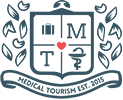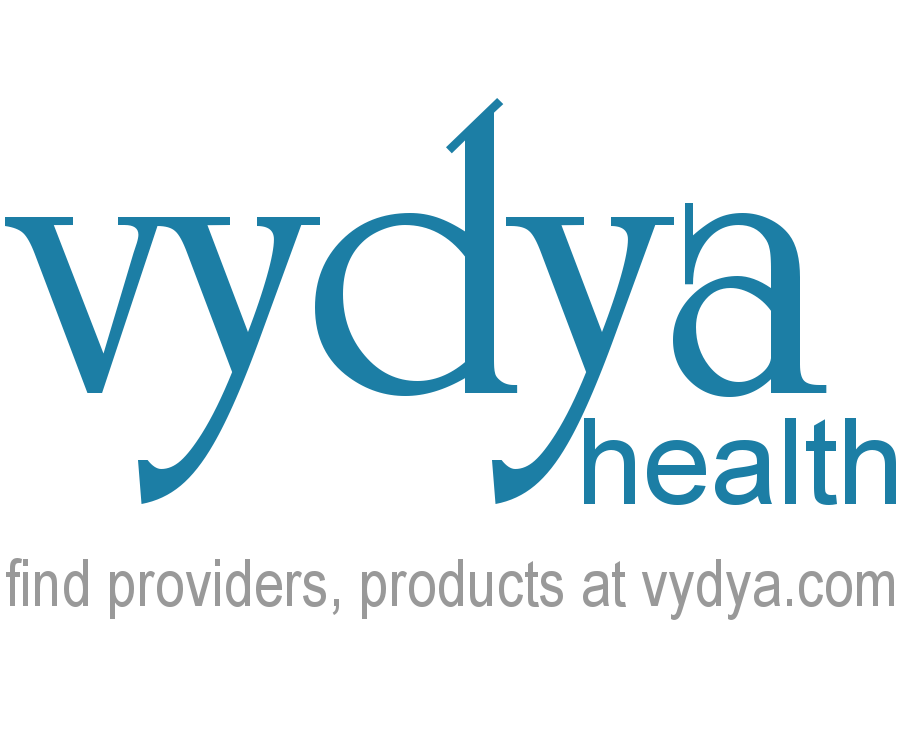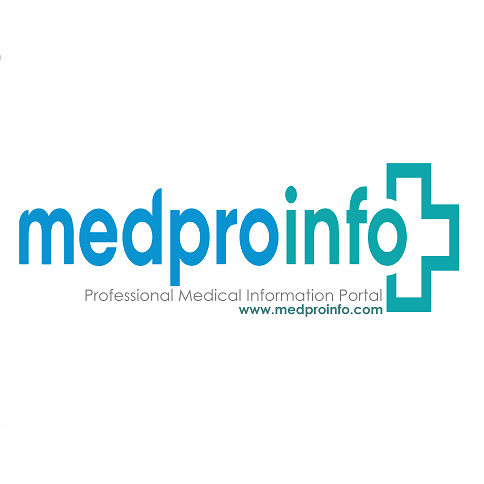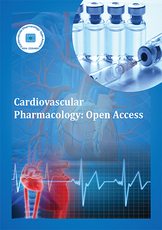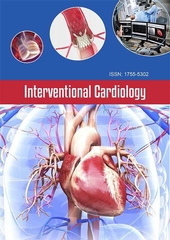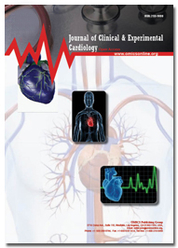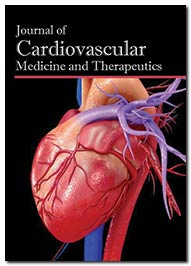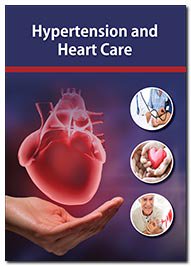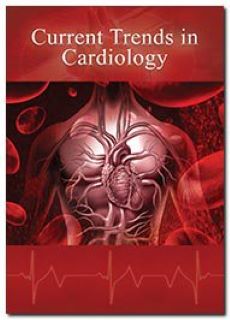Theme:
Cardiology Meet 2021
Encouraged by the success of previous annual conferences in series, 8th Annual Meet on Cardiology and Heart Diseases Organizing Committee invites you to attend the largest assemblage of cardiologists, cardiovascular researchers, public health professionals, scientists, academic scientists, industry researchers, scholars from around the globe during April 26-27, 2021 | Webinar. This is an excellent opportunity for the delegates from Universities and Institutes to interact with the world class Scientists. The main theme of the conference is “Novel Breakthroughs and Remedial Treatments in field of Cardiology and Heart Diseases”. This conference will provide a comprehensive update on all medical, surgical, interventional, and electrophysiological topics and experts with national and international reputations in various cardio sub-specialties will address the latest guidelines, practice patterns and solutions in cardiovascular medicine. Lectures will provide a comprehensive state-of-the-art update of the clinical uses of various techniques in the diagnosis, prognosis, and management of heart diseases. Cardiology Meet 2021 will help in frameworks organization, B2B teaming up amidst specialists and academicians across the globe.
Scope and importance:
The world is becoming increasingly vulnerable to public health challenges and risks for cardiac diseases bursts. Cardiology Meet 2021 provides a unique opportunity for academic leaders, educators and, clinicians as well as for experts and scholars of higher education from all over the world to con-vane and share novel ideas on crucial issues and trends in field of Cardiology and Heart Diseases. From prevention through optimal care and finally to targeted treatment modes and rehabilitation the whole range of cardiovascular disease will be presented with world-class faculty, researchers and mentors as well as healthcare clinical professionals.
The aim of this conference is stimulate new ideas for treatment and analyze the current market for the future direction of cardiovascular drugs, devices and diagnostics, with an emphasis on newer products that will be beneficial across the spectrum of cardiology.
Why to attend?
8th Annual Meet on Cardiology and Heart Diseases is among the World's leading Scientific Conference to bring together worldwide distinguished academics in the field of cardiology, cardiovascular researchers, public health professionals, professors, academic scientists, industry researchers, scholars to exchange their ideas about research state and technologies. With people from around the world focused on getting some answers concerning Cardiovascular Diseases, this is your most obvious opportunity to accomplish the greatest accumulation of individuals from the mending focuses, universities, bunch, etc. The Conference will provide enough space for discussion, meetings and workshops in order to allow a close contact between speakers and visitors. Many distinguished cardiologists, cardiac surgeons’ researchers and scientists will take part in this Conference. Papers will be presented in the form of plenary sessions, symposia and posters and will include good scientific and clinical material that was carefully selected by the Review Committee. The Conference will provide the ideal forum to stimulate ideas and establish collaborations.
Target Audience:
Cardiology
Interventional Cardiology
Cardiac Surgeons
Hypertension
Cardiac Pharmacology
Heart Failure
Internal Medicine
Pediatric Cardiology
Preventive Cardiology
Cardio-Thoracic Surgery
Cardiology Imaging
Cardiac Oncology
Nuclear Cardiology
Echocardiography
Vascular Medicine
Cardiac Nursing
Cardio Vascular Medicine
Cardiovascular and Thoracic Surgery Instruments
Track 1: Cardiology is a branch of internal medicine that deals with the disorders of the heart as well as some parts of the circulatory system which includes medical diagnosis and treatment of congenital heart defects, coronary artery disease, heart failure and electrophysiology. Physicians with specialization in this field of internal medicine are called Cardiologists. Pediatric Cardiologists are pediatricians with specialize in Cardiology. Physicians who specialize in Cardiac surgery are called Cardiothoracic Surgeons or Cardiac Surgeons, a specialty of general surgery.
In basic, Cardiologists study the disorders of the heart, but the study of adult and child heart disorders are through different training pathways. The surgical aspects are not included in Cardiology and are in the domain of Cardiothoracic Surgery. For example, Coronary Artery Bypass surgery (CABG), Cardiopulmonary bypass and valve replacement are surgical procedures performed by surgeons, not cardiologists and insertion of stents and pacemakers is performed by Cardiologists.
A cardiologist specializes in diagnosing and treating diseases of the cardiovascular system. The cardiologist will carry out tests, and they may some do procedures, such as heart catheterizations, angioplasty, or inserting a pacemaker.
A cardiologist will review a patient's medical history and carry out a physical examination. They may check the person's weight, heart, lungs, blood pressure, and blood vessels, and carry out some tests.
An interventional cardiologist may carry out procedures such as angioplasties, stenting, valvuloplasties, congenital heart defect corrections, and coronary thrombectomies depending upon the severity of the patient. They may also carry out or order tests as:
- Electrocardiogram
- Ambulatory ECG
- Echocardiogram and Stress Test
- Cardiac catheterization
- Nuclear cardiology
Related Societies:
America: American Association for Thoracic Surgery, American Cardiology Association, American College of Cardiology, American Heart Association, Heart Failure Society of America, Congenital Cardiac Anesthesia Society, Northwest Association of Cardiovascular and Pulmonary Rehabilitation, Heart & Stroke Foundation of Barbads, The Society for Cardiovascular Angiography and Interventions Foundation, Vascular and Endovascular Surgery Society, Canadian Association of Interventional Cardiology (CAIC), Latin American Society of Hypertension, Congential Heart Surgeon's Society
Europe: British Heart Foundation, European Association for Cardio-Thoracic Surgery, European Cardiology Congress, European Congenital Heart Surgeons Association, European Society for Cardio-Vascular Surgery, European Society of Cardiology, European Society of Hypertension, French Society of Cardiology, German Cardiac Society (GCS), German Heart Foundation, Heart Valve Society, German Hypertension Society, Heart Rhythm Society, Italian Federation of Cardiology, Hungarian Society of Cardiology, Irish Association of Cardiac Rehabilitation, Italian Society of Cardiology, Italian Society of Thoracic Surgery, Latvian Society of Cardiology, Danish Society of Cardiology, Spanish Society of Cardiology, British Cardiology Society, Albanian Society of Cardiology, Swedish Society of Cardiology, Association of Cardiologists of Bosnia & Herzegovina, British Association of Nursing in Cardiovascular Care, British Heart Failure Society, British Nuclear Cardiology Society, Lithuanian Society of Cardiology, Polish Cardiac Society, Cardiology Society of Serbia, Cyprus Society of Cardiology, Czech Society of Cardiology, Estonian Society of Cardiology, Finnish Cardiac Society, Georgian Society of Cardiology, British Congenital Cardiac Association (BCCA), Spanish Heart Foundation, International Society for Vascular Surgery, Irish Cardiac Society, Kosovo Society of Cardiology, Luxembourg Society of Cardiology, Moldavian Society of Cardiology, Moroccan Society of Cardiology, Norwegian Society of Cardiology, Portuguese Society of Cardiology, Slovak Society of Cardiology, Slovenian Society of Cardiology, Swiss Society of Cardiology
Middle-East: Egyptian Society of Cardiology, Gulf Heart Association, Indonesian Heart Association, International Academy of Cardiology, Indian Association of Cardiovascular-Thoracic Surgeons, International Cardiac Pacing and Electrophysiology Society (ICPES), Armenian Cardiologists Association, International Society of Hypertension, Russian Society of Cardiology, International Society for Minimally Invasive Cardiothoracic Surgery, International Society for the Study of Hypertension in Pregnancy, International Society on Thrombosis and Haemostasis, Iranian Heart Foundation
Asia-Pacific: Asian Pacific Society of Cardiology, Cardiological Society of India, Philippine Heart Association, Chinese Society of Cardiology, Israel Heart Society, Japanese Circulation Society, Japanese Society of Thoracic Radiology, The Pan-African Society of Cardiology (PASCAR), Korean Society for Thoracic & Cardiovascular Surgery, Israeli Cardiology and Critical Care Nursing Society, World Health Organization, World Heart Federation
Track 2: Narrowing or blockage of the coronary arteries, usually caused by atherosclerosis leads to Coronary Artery Disease. Atherosclerosis is prominently known to be hardening or clogging of the arteries is the buildup of cholesterol and fatty deposits (called plaques) on the inner walls of the arteries. These plaques may have a chance to restrict blood flow to the heart muscle by physically clogging the artery or by causing abnormal artery tone and function.
Without proper blood supply, the heart becomes starved of oxygen and the vital nutrients it needs to work properly. This can cause chest pain called angina. Complete stoppage of the blood supply to heart muscle (or) energy demand of heart become much greater than its blood supply, there are major chances of heart attack. Major four coronary arteries are located on the surface of the heart:
- Right Main Coronary Artery
- Left Main Coronary Artery
- Left Circumflex Artery
- Left Anterior Descending Artery
Normal symptoms of Coronary Artery Disease are most likely to be chest pain, heaviness, tightness, burning, squeezing, pain in the arms or shoulders, shortness of breath, sweating and dizziness. But the symptoms in women who are affected with CAD are Nausea, vomiting, back pain, jaw pain and shortness of breath without feeling chest pain.
Different type surgeries need to be undergone depending upon the seveartiy of the heart attach namely:
- Chronic Obstructive Pulmonary Disorder
- Deep Vein Thrombosis and Pulmonary Embolism
- Vascular Disease (blood vessel disease)
- Congenital Heart Disease
- Heart Valve disease
Related Societies:
America: American Association for Thoracic Surgery, American Cardiology Association, American College of Cardiology, American Heart Association, Heart Failure Society of America, Congenital Cardiac Anesthesia Society, Northwest Association of Cardiovascular and Pulmonary Rehabilitation, Heart & Stroke Foundation of Barbads, The Society for Cardiovascular Angiography and Interventions Foundation, Vascular and Endovascular Surgery Society, Canadian Association of Interventional Cardiology (CAIC), Latin American Society of Hypertension, Congential Heart Surgeon's Society
Europe: British Heart Foundation, European Association for Cardio-Thoracic Surgery, European Cardiology Congress, European Congenital Heart Surgeons Association, European Society for Cardio-Vascular Surgery, European Society of Cardiology, European Society of Hypertension, French Society of Cardiology, German Cardiac Society (GCS), German Heart Foundation, Heart Valve Society, German Hypertension Society, Heart Rhythm Society, Italian Federation of Cardiology, Hungarian Society of Cardiology, Irish Association of Cardiac Rehabilitation, Italian Society of Cardiology, Italian Society of Thoracic Surgery, Latvian Society of Cardiology, Danish Society of Cardiology, Spanish Society of Cardiology, British Cardiology Society, Albanian Society of Cardiology, Swedish Society of Cardiology, Association of Cardiologists of Bosnia & Herzegovina, British Association of Nursing in Cardiovascular Care, British Heart Failure Society, British Nuclear Cardiology Society, Lithuanian Society of Cardiology, Polish Cardiac Society, Cardiology Society of Serbia, Cyprus Society of Cardiology, Czech Society of Cardiology, Estonian Society of Cardiology, Finnish Cardiac Society, Georgian Society of Cardiology, British Congenital Cardiac Association (BCCA), Spanish Heart Foundation, International Society for Vascular Surgery, Irish Cardiac Society, Kosovo Society of Cardiology, Luxembourg Society of Cardiology, Moldavian Society of Cardiology, Moroccan Society of Cardiology, Norwegian Society of Cardiology, Portuguese Society of Cardiology, Slovak Society of Cardiology, Slovenian Society of Cardiology, Swiss Society of Cardiology
Middle-East: Egyptian Society of Cardiology, Gulf Heart Association, Indonesian Heart Association, International Academy of Cardiology, Indian Association of Cardiovascular-Thoracic Surgeons, International Cardiac Pacing and Electrophysiology Society (ICPES), Armenian Cardiologists Association, International Society of Hypertension, Russian Society of Cardiology, International Society for Minimally Invasive Cardiothoracic Surgery, International Society for the Study of Hypertension in Pregnancy, International Society on Thrombosis and Haemostasis, Iranian Heart Foundation
Asia-Pacific: Asian Pacific Society of Cardiology, Cardiological Society of India, Philippine Heart Association, Chinese Society of Cardiology, Israel Heart Society, Japanese Circulation Society, Japanese Society of Thoracic Radiology, The Pan-African Society of Cardiology (PASCAR), Korean Society for Thoracic & Cardiovascular Surgery, Israeli Cardiology and Critical Care Nursing Society, World Health Organization, World Heart Federation
Track 3: An abnormal heart rhythm also called an Arrhythmia means your heart is beating too fast, too slow, or with an irregular pattern. Your heart has an electrical system that tells it when to beat and pump blood around your body. If there is a problem with this system you may experience an abnormal heart rhythm. The symptoms of an abnormal heart rhythm depend on what type of arrhythmia you have. The most common symptoms of an abnormal heart rhythm include palpitations (a thumping or fluttering sensation in your chest), dizziness, breathlessness, feeling tired and losing consciousness.
It's normal for heart to beat at different rates during the day. It will be slower when you're resting but may be faster when you are physically active, anxious or excited. If heart has missed or 'skipped' a beat, or that there has been an extra beat. This is called an ectopic beat. Ectopic beats are very common and harmless so they don’t usually need treatment. It is highly recommended to visit doctor, if you have felt any of the described feelings like palpitations last a long time, don't improve or get worse, feeling dizzy or faint and you have history of heart problems.
There are many different types of abnormal heart rhythm depends on where the heart electrical impulse starts, and if it causes your heart to beat too fast, or too slowly. Common Abnormal Rhythm is Atrial Fibrillation, an irregular or fast heart rhythm. Other abnormal heart rhythms include:
- Fast heart rhythms such as Supraventricular Tachycardia (SVT), Sinus Tachycardia (ST) and Ventricular Tachycardia (VT) are known as Tachycardias and are faster than 90 beats per minute
- Bradycardias such as heart block are slow abnormal heart rhythms, when your heart beat is 60 beats per minute or below
- Atrial Flutter is typically a very fast, irregular heart rhythm
- Tachybrady syndrome (sick sinus syndrome) includes periods of very fast or slow heart beats
- Ventricular Fibrillation (VF), is an abnormal heart rhythm that's so fast a pulse cannot be identified and is an emergency situation.
Some abnormal heart rhythms are inherited. Depending upon the family, in such case it is better to have tested to take preventive measures. Abnormal Heart Rhythms include:
- Tachycardia
- Atrial Fibrillation
- Atrial Flutter
- Bradycardia
- Ventricular Fibrillation
- Premature Contractions
Related Societies:
America: American Association for Thoracic Surgery, American Cardiology Association, American College of Cardiology, American Heart Association, Heart Failure Society of America, Congenital Cardiac Anesthesia Society, Northwest Association of Cardiovascular and Pulmonary Rehabilitation, Heart & Stroke Foundation of Barbads, The Society for Cardiovascular Angiography and Interventions Foundation, Vascular and Endovascular Surgery Society, Canadian Association of Interventional Cardiology (CAIC), Latin American Society of Hypertension, Congential Heart Surgeon's Society
Europe: British Heart Foundation, European Association for Cardio-Thoracic Surgery, European Cardiology Congress, European Congenital Heart Surgeons Association, European Society for Cardio-Vascular Surgery, European Society of Cardiology, European Society of Hypertension, French Society of Cardiology, German Cardiac Society (GCS), German Heart Foundation, Heart Valve Society, German Hypertension Society, Heart Rhythm Society, Italian Federation of Cardiology, Hungarian Society of Cardiology, Irish Association of Cardiac Rehabilitation, Italian Society of Cardiology, Italian Society of Thoracic Surgery, Latvian Society of Cardiology, Danish Society of Cardiology, Spanish Society of Cardiology, British Cardiology Society, Albanian Society of Cardiology, Swedish Society of Cardiology, Association of Cardiologists of Bosnia & Herzegovina, British Association of Nursing in Cardiovascular Care, British Heart Failure Society, British Nuclear Cardiology Society, Lithuanian Society of Cardiology, Polish Cardiac Society, Cardiology Society of Serbia, Cyprus Society of Cardiology, Czech Society of Cardiology, Estonian Society of Cardiology, Finnish Cardiac Society, Georgian Society of Cardiology, British Congenital Cardiac Association (BCCA), Spanish Heart Foundation, International Society for Vascular Surgery, Irish Cardiac Society, Kosovo Society of Cardiology, Luxembourg Society of Cardiology, Moldavian Society of Cardiology, Moroccan Society of Cardiology, Norwegian Society of Cardiology, Portuguese Society of Cardiology, Slovak Society of Cardiology, Slovenian Society of Cardiology, Swiss Society of Cardiology
Middle-East: Egyptian Society of Cardiology, Gulf Heart Association, Indonesian Heart Association, International Academy of Cardiology, Indian Association of Cardiovascular-Thoracic Surgeons, International Cardiac Pacing and Electrophysiology Society (ICPES), Armenian Cardiologists Association, International Society of Hypertension, Russian Society of Cardiology, International Society for Minimally Invasive Cardiothoracic Surgery, International Society for the Study of Hypertension in Pregnancy, International Society on Thrombosis and Haemostasis, Iranian Heart Foundation
Asia-Pacific: Asian Pacific Society of Cardiology, Cardiological Society of India, Philippine Heart Association, Chinese Society of Cardiology, Israel Heart Society, Japanese Circulation Society, Japanese Society of Thoracic Radiology, The Pan-African Society of Cardiology (PASCAR), Korean Society for Thoracic & Cardiovascular Surgery, Israeli Cardiology and Critical Care Nursing Society, World Health Organization, World Heart Federation
Track 4: Coronary artery disease also called Heart disease with various risk factors, in which few are controllable and other are uncontrollable. Changing your lifestyle can have chances to reduce the risk of heart diseases. Major reasons for increasing risk of Heart diseases are
- Habits of smoking
- Fluctuations in high blood pressure
- Physical inactivity
- Obesity
- Increasing level of Cholesterol
- High diabetes
- High C-reactive protein
- More stress, depression anger
- Excessive intake of alcohol
- Poor diet
Also some other factors such as older age, family history of heart disease, being postmenopausal and most often race of the living beings are causes for uncontrollable heart diseases.
There are chances to reduce the risk of heart diseases by making the necessary changes in your life style which helps in decreasing the rate of heart diseases but cannot proven that these healthy practices will keep diseases away. With these changes, one may certainly improve your health in other ways, such as improving your physical and emotional well being. Quitting smoking, improving your cholesterol levels, controlling of high blood pressure, reduce the stress levels, avoid intake of alcohol, good diet with correct weight management, control of diabetes and performing physical cardiac exercises and yoga.
Related Societies:
America: American Association for Thoracic Surgery, American Cardiology Association, American College of Cardiology, American Heart Association, Heart Failure Society of America, Congenital Cardiac Anesthesia Society, Northwest Association of Cardiovascular and Pulmonary Rehabilitation, Heart & Stroke Foundation of Barbads, The Society for Cardiovascular Angiography and Interventions Foundation, Vascular and Endovascular Surgery Society, Canadian Association of Interventional Cardiology (CAIC), Latin American Society of Hypertension, Congential Heart Surgeon's Society
Europe: British Heart Foundation, European Association for Cardio-Thoracic Surgery, European Cardiology Congress, European Congenital Heart Surgeons Association, European Society for Cardio-Vascular Surgery, European Society of Cardiology, European Society of Hypertension, French Society of Cardiology, German Cardiac Society (GCS), German Heart Foundation, Heart Valve Society, German Hypertension Society, Heart Rhythm Society, Italian Federation of Cardiology, Hungarian Society of Cardiology, Irish Association of Cardiac Rehabilitation, Italian Society of Cardiology, Italian Society of Thoracic Surgery, Latvian Society of Cardiology, Danish Society of Cardiology, Spanish Society of Cardiology, British Cardiology Society, Albanian Society of Cardiology, Swedish Society of Cardiology, Association of Cardiologists of Bosnia & Herzegovina, British Association of Nursing in Cardiovascular Care, British Heart Failure Society, British Nuclear Cardiology Society, Lithuanian Society of Cardiology, Polish Cardiac Society, Cardiology Society of Serbia, Cyprus Society of Cardiology, Czech Society of Cardiology, Estonian Society of Cardiology, Finnish Cardiac Society, Georgian Society of Cardiology, British Congenital Cardiac Association (BCCA), Spanish Heart Foundation, International Society for Vascular Surgery, Irish Cardiac Society, Kosovo Society of Cardiology, Luxembourg Society of Cardiology, Moldavian Society of Cardiology, Moroccan Society of Cardiology, Norwegian Society of Cardiology, Portuguese Society of Cardiology, Slovak Society of Cardiology, Slovenian Society of Cardiology, Swiss Society of Cardiology
Middle-East: Egyptian Society of Cardiology, Gulf Heart Association, Indonesian Heart Association, International Academy of Cardiology, Indian Association of Cardiovascular-Thoracic Surgeons, International Cardiac Pacing and Electrophysiology Society (ICPES), Armenian Cardiologists Association, International Society of Hypertension, Russian Society of Cardiology, International Society for Minimally Invasive Cardiothoracic Surgery, International Society for the Study of Hypertension in Pregnancy, International Society on Thrombosis and Haemostasis, Iranian Heart Foundation
Asia-Pacific: Asian Pacific Society of Cardiology, Cardiological Society of India, Philippine Heart Association, Chinese Society of Cardiology, Israel Heart Society, Japanese Circulation Society, Japanese Society of Thoracic Radiology, The Pan-African Society of Cardiology (PASCAR), Korean Society for Thoracic & Cardiovascular Surgery, Israeli Cardiology and Critical Care Nursing Society, World Health Organization, World Heart Federation
Track 5: Cardiac surgery or cardiovascular surgery is performed on heart vessels by cardiac surgeons. It is commonly used to treat complications of ischemic heart disease. There are many procedures and surgeries in order to overcome the heart attack but Heart surgery has risks, even though its results often are excellent. Risks include bleeding, infection, irregular heartbeats, and stroke. The risk is higher if you are older or a woman (or) if you have other conditions such as diabetes, kidney disease, lung disease, or peripheral arterial disease.
- Coronary artery bypass grafting (CABG).
- Ischemia
- Heart valve repair or replacement
- Insertion of a pacemaker or an implantable cardioverter defibrillator (ICD).
- Maze surgery
- Aneurysm repair
- Insertion of a ventricular assist device (VAD) or total artificial heart (TAH).
- Heart Transplant
- Transcatheter Structural Heart Surgery
- Artificial Heart Valve Surgery
- Atherectomy
- Bypass Surgery
- Radiofrequency Ablation
- Transmyocardial Revascularization (TMR)
Related Societies:
America: American Association for Thoracic Surgery, American Cardiology Association, American College of Cardiology, American Heart Association, Heart Failure Society of America, Congenital Cardiac Anesthesia Society, Northwest Association of Cardiovascular and Pulmonary Rehabilitation, Heart & Stroke Foundation of Barbads, The Society for Cardiovascular Angiography and Interventions Foundation, Vascular and Endovascular Surgery Society, Canadian Association of Interventional Cardiology (CAIC), Latin American Society of Hypertension, Congential Heart Surgeon's Society
Europe: British Heart Foundation, European Association for Cardio-Thoracic Surgery, European Cardiology Congress, European Congenital Heart Surgeons Association, European Society for Cardio-Vascular Surgery, European Society of Cardiology, European Society of Hypertension, French Society of Cardiology, German Cardiac Society (GCS), German Heart Foundation, Heart Valve Society, German Hypertension Society, Heart Rhythm Society, Italian Federation of Cardiology, Hungarian Society of Cardiology, Irish Association of Cardiac Rehabilitation, Italian Society of Cardiology, Italian Society of Thoracic Surgery, Latvian Society of Cardiology, Danish Society of Cardiology, Spanish Society of Cardiology, British Cardiology Society, Albanian Society of Cardiology, Swedish Society of Cardiology, Association of Cardiologists of Bosnia & Herzegovina, British Association of Nursing in Cardiovascular Care, British Heart Failure Society, British Nuclear Cardiology Society, Lithuanian Society of Cardiology, Polish Cardiac Society, Cardiology Society of Serbia, Cyprus Society of Cardiology, Czech Society of Cardiology, Estonian Society of Cardiology, Finnish Cardiac Society, Georgian Society of Cardiology, British Congenital Cardiac Association (BCCA), Spanish Heart Foundation, International Society for Vascular Surgery, Irish Cardiac Society, Kosovo Society of Cardiology, Luxembourg Society of Cardiology, Moldavian Society of Cardiology, Moroccan Society of Cardiology, Norwegian Society of Cardiology, Portuguese Society of Cardiology, Slovak Society of Cardiology, Slovenian Society of Cardiology, Swiss Society of Cardiology
Middle-East: Egyptian Society of Cardiology, Gulf Heart Association, Indonesian Heart Association, International Academy of Cardiology, Indian Association of Cardiovascular-Thoracic Surgeons, International Cardiac Pacing and Electrophysiology Society (ICPES), Armenian Cardiologists Association, International Society of Hypertension, Russian Society of Cardiology, International Society for Minimally Invasive Cardiothoracic Surgery, International Society for the Study of Hypertension in Pregnancy, International Society on Thrombosis and Haemostasis, Iranian Heart Foundation
Asia-Pacific: Asian Pacific Society of Cardiology, Cardiological Society of India, Philippine Heart Association, Chinese Society of Cardiology, Israel Heart Society, Japanese Circulation Society, Japanese Society of Thoracic Radiology, The Pan-African Society of Cardiology (PASCAR), Korean Society for Thoracic & Cardiovascular Surgery, Israeli Cardiology and Critical Care Nursing Society, World Health Organization, World Heart Federation
Track 6: Hypertension is another name for High Blood Pressure is a common condition in which the long-term force of the blood against your artery walls is high enough that it may eventually cause health complications. Hypertension is a major risk factor for cardiovascular disease, including stroke, heart attack, heart failure and aneurysm. Sometimes it may suddenly leads to death of the person. Blood pressure is the force that a person's blood exerts against the walls of their blood vessels. This pressure depends on the resistance of the blood vessels and how hard the heart has to work.
Keeping blood pressure under control is most important for preserving health and reducing the risk of these dangerous conditions. Most people with high blood pressure have no signs or symptoms, even if blood pressure readings reach dangerously high levels. A few people with high blood pressure may have headaches, shortness of breath or nosebleeds, but these signs and symptoms aren't specific and usually don't occur until high blood pressure has reached a severe or life-threatening stage.There are two types of high blood pressure:
Primary (essential) Hypertension: Mostly, there's no identifiable cause of high blood pressure. This type of high blood pressure called Primary (essential) Hypertension tends to develop gradually over many years.
Secondary hypertension: Some people have high blood pressure caused by an underlying condition. This type of high blood pressure called secondary hypertension tends to appear suddenly and cause higher blood pressure.
Risk factors of High Blood Pressure includes Age, Race, Family history, Being overweight or obese, Not being physically active, Using tobacco, Too much salt (sodium) in your diet, Too little potassium in your diet, Drinking too much alcohol, Stress, Certain chronic conditions. Many Complications include
- Heart Stroke
- Heart Attack
- Aneurysm
- Heart Failure
- Weakened and narrowed blood vessels in your kidneys
- Thickened, narrowed or torn blood vessels in the eyes
- Metabolic syndrome
- Dementia.
Related Societies:
America: American Association for Thoracic Surgery, American Cardiology Association, American College of Cardiology, American Heart Association, Heart Failure Society of America, Congenital Cardiac Anesthesia Society, Northwest Association of Cardiovascular and Pulmonary Rehabilitation, Heart & Stroke Foundation of Barbads, The Society for Cardiovascular Angiography and Interventions Foundation, Vascular and Endovascular Surgery Society, Canadian Association of Interventional Cardiology (CAIC), Latin American Society of Hypertension, Congential Heart Surgeon's Society
Europe: British Heart Foundation, European Association for Cardio-Thoracic Surgery, European Cardiology Congress, European Congenital Heart Surgeons Association, European Society for Cardio-Vascular Surgery, European Society of Cardiology, European Society of Hypertension, French Society of Cardiology, German Cardiac Society (GCS), German Heart Foundation, Heart Valve Society, German Hypertension Society, Heart Rhythm Society, Italian Federation of Cardiology, Hungarian Society of Cardiology, Irish Association of Cardiac Rehabilitation, Italian Society of Cardiology, Italian Society of Thoracic Surgery, Latvian Society of Cardiology, Danish Society of Cardiology, Spanish Society of Cardiology, British Cardiology Society, Albanian Society of Cardiology, Swedish Society of Cardiology, Association of Cardiologists of Bosnia & Herzegovina, British Association of Nursing in Cardiovascular Care, British Heart Failure Society, British Nuclear Cardiology Society, Lithuanian Society of Cardiology, Polish Cardiac Society, Cardiology Society of Serbia, Cyprus Society of Cardiology, Czech Society of Cardiology, Estonian Society of Cardiology, Finnish Cardiac Society, Georgian Society of Cardiology, British Congenital Cardiac Association (BCCA), Spanish Heart Foundation, International Society for Vascular Surgery, Irish Cardiac Society, Kosovo Society of Cardiology, Luxembourg Society of Cardiology, Moldavian Society of Cardiology, Moroccan Society of Cardiology, Norwegian Society of Cardiology, Portuguese Society of Cardiology, Slovak Society of Cardiology, Slovenian Society of Cardiology, Swiss Society of Cardiology
Middle-East: Egyptian Society of Cardiology, Gulf Heart Association, Indonesian Heart Association, International Academy of Cardiology, Indian Association of Cardiovascular-Thoracic Surgeons, International Cardiac Pacing and Electrophysiology Society (ICPES), Armenian Cardiologists Association, International Society of Hypertension, Russian Society of Cardiology, International Society for Minimally Invasive Cardiothoracic Surgery, International Society for the Study of Hypertension in Pregnancy, International Society on Thrombosis and Haemostasis, Iranian Heart Foundation
Asia-Pacific: Asian Pacific Society of Cardiology, Cardiological Society of India, Philippine Heart Association, Chinese Society of Cardiology, Israel Heart Society, Japanese Circulation Society, Japanese Society of Thoracic Radiology, The Pan-African Society of Cardiology (PASCAR), Korean Society for Thoracic & Cardiovascular Surgery, Israeli Cardiology and Critical Care Nursing Society, World Health Organization, World Heart Federation
Track 7: Chronic obstructive pulmonary disease (COPD) is a group of progressive lung diseases. The most common are Emphysema and Chronic Bronchitis. Many people with COPD have both of these conditions. Long-term exposure to chemical irritants and more tobacco smoking leads to COPD which
usually takes a long time to develop. Detection involves imaging tests, blood tests, and lung function tests. Treatment such medications, supplemental oxygen therapy and surgery may help to improve quality of life and lower the chance of complications. But there is no cure for COPD
Untreated COPD can lead to a faster progression of disease, heart problems, and worsening respiratory infections. Symptoms will vary depending upon the severity it caused in the body. Among different grading systems, most commoly used method to measure COPD is Spirometry grading, is a part of GOLD classification. The GOLD classification is used for determining COPD severity and helping to form a prognosis and treatment plan. There are four GOLD grades based on spirometry testing, They are:
Grade 1: mild
Grade 2: moderate
Grade 3: severe
Grade 4: very severe
Treatment for COPD includes Medication, Oxygen therapy, Surgery, Lung transplantation, Lifestyle changes. Medications for COPD are:
- Inhaled bronchodilators
- Corticosteroids
- Phosphodiesterase-4 inhibitors
- Theophylline
- Antibiotics and antivirals
- Vaccines
- Bullectomy
Related Societies:
America: American Association for Thoracic Surgery, American Cardiology Association, American College of Cardiology, American Heart Association, Heart Failure Society of America, Congenital Cardiac Anesthesia Society, Northwest Association of Cardiovascular and Pulmonary Rehabilitation, Heart & Stroke Foundation of Barbads, The Society for Cardiovascular Angiography and Interventions Foundation, Vascular and Endovascular Surgery Society, Canadian Association of Interventional Cardiology (CAIC), Latin American Society of Hypertension, Congential Heart Surgeon's Society
Europe: British Heart Foundation, European Association for Cardio-Thoracic Surgery, European Cardiology Congress, European Congenital Heart Surgeons Association, European Society for Cardio-Vascular Surgery, European Society of Cardiology, European Society of Hypertension, French Society of Cardiology, German Cardiac Society (GCS), German Heart Foundation, Heart Valve Society, German Hypertension Society, Heart Rhythm Society, Italian Federation of Cardiology, Hungarian Society of Cardiology, Irish Association of Cardiac Rehabilitation, Italian Society of Cardiology, Italian Society of Thoracic Surgery, Latvian Society of Cardiology, Danish Society of Cardiology, Spanish Society of Cardiology, British Cardiology Society, Albanian Society of Cardiology, Swedish Society of Cardiology, Association of Cardiologists of Bosnia & Herzegovina, British Association of Nursing in Cardiovascular Care, British Heart Failure Society, British Nuclear Cardiology Society, Lithuanian Society of Cardiology, Polish Cardiac Society, Cardiology Society of Serbia, Cyprus Society of Cardiology, Czech Society of Cardiology, Estonian Society of Cardiology, Finnish Cardiac Society, Georgian Society of Cardiology, British Congenital Cardiac Association (BCCA), Spanish Heart Foundation, International Society for Vascular Surgery, Irish Cardiac Society, Kosovo Society of Cardiology, Luxembourg Society of Cardiology, Moldavian Society of Cardiology, Moroccan Society of Cardiology, Norwegian Society of Cardiology, Portuguese Society of Cardiology, Slovak Society of Cardiology, Slovenian Society of Cardiology, Swiss Society of Cardiology
Middle-East: Egyptian Society of Cardiology, Gulf Heart Association, Indonesian Heart Association, International Academy of Cardiology, Indian Association of Cardiovascular-Thoracic Surgeons, International Cardiac Pacing and Electrophysiology Society (ICPES), Armenian Cardiologists Association, International Society of Hypertension, Russian Society of Cardiology, International Society for Minimally Invasive Cardiothoracic Surgery, International Society for the Study of Hypertension in Pregnancy, International Society on Thrombosis and Haemostasis, Iranian Heart Foundation
Asia-Pacific: Asian Pacific Society of Cardiology, Cardiological Society of India, Philippine Heart Association, Chinese Society of Cardiology, Israel Heart Society, Japanese Circulation Society, Japanese Society of Thoracic Radiology, The Pan-African Society of Cardiology (PASCAR), Korean Society for Thoracic & Cardiovascular Surgery, Israeli Cardiology and Critical Care Nursing Society, World Health Organization, World Heart Federation
Track 8: Deposits of excessive amount of body fat leads to Obesity. It is a medical problem that increases your risk of other diseases and health problems, such as heart disease, diabetes, high blood pressure and certain cancers. Some face serious difficulties in avoiding obesity. Usually, obesity results from a combination of inherited factors, combined with the environment and personal diet and exercise choices. Weight loss of obesity patients can have chances to improve or prevent health problems.
Dietary changes, increased physical activity and behavior changes can help you lose weight. Prescription medications and weight-loss procedures are additional options for treating obesity. Diabetes Mellitus commonly known as Diabetes, is a metabolic disease that causes high blood sugar. Sugar is moved into the cells to be stores or for use of energy with help of hormone Insulin. Diabetes in body either doesn’t make enough insulin or can’t effectively use the insulin it does make. Each type of diabetes has unique symptoms, causes, and treatments. Untreated high blood sugar from diabetes can damage your nerves, eyes, kidneys, and other organs. There are a different types of diabetes:
Type 1 diabetes is an autoimmune disease. The immune system attacks and destroys cells in the pancreas, where insulin is made.
Type 2 diabetes occurs when your body becomes resistant to insulin, and sugar builds up in your blood.
Prediabetes occurs when your blood sugar is higher than normal, but it’s not high enough for a diagnosis of type 2 diabetes.
Gestational diabetes is high blood sugar during pregnancy. Insulin-blocking hormones produced by the placenta cause this type of diabetes. A rare condition called diabetes insipidus is not related to diabetes mellitus has different condition in which your kidneys remove too much fluid from your body.
Related Societies:
America: American Association for Thoracic Surgery, American Cardiology Association, American College of Cardiology, American Heart Association, Heart Failure Society of America, Congenital Cardiac Anesthesia Society, Northwest Association of Cardiovascular and Pulmonary Rehabilitation, Heart & Stroke Foundation of Barbads, The Society for Cardiovascular Angiography and Interventions Foundation, Vascular and Endovascular Surgery Society, Canadian Association of Interventional Cardiology (CAIC), Latin American Society of Hypertension, Congential Heart Surgeon's Society
Europe: British Heart Foundation, European Association for Cardio-Thoracic Surgery, European Cardiology Congress, European Congenital Heart Surgeons Association, European Society for Cardio-Vascular Surgery, European Society of Cardiology, European Society of Hypertension, French Society of Cardiology, German Cardiac Society (GCS), German Heart Foundation, Heart Valve Society, German Hypertension Society, Heart Rhythm Society, Italian Federation of Cardiology, Hungarian Society of Cardiology, Irish Association of Cardiac Rehabilitation, Italian Society of Cardiology, Italian Society of Thoracic Surgery, Latvian Society of Cardiology, Danish Society of Cardiology, Spanish Society of Cardiology, British Cardiology Society, Albanian Society of Cardiology, Swedish Society of Cardiology, Association of Cardiologists of Bosnia & Herzegovina, British Association of Nursing in Cardiovascular Care, British Heart Failure Society, British Nuclear Cardiology Society, Lithuanian Society of Cardiology, Polish Cardiac Society, Cardiology Society of Serbia, Cyprus Society of Cardiology, Czech Society of Cardiology, Estonian Society of Cardiology, Finnish Cardiac Society, Georgian Society of Cardiology, British Congenital Cardiac Association (BCCA), Spanish Heart Foundation, International Society for Vascular Surgery, Irish Cardiac Society, Kosovo Society of Cardiology, Luxembourg Society of Cardiology, Moldavian Society of Cardiology, Moroccan Society of Cardiology, Norwegian Society of Cardiology, Portuguese Society of Cardiology, Slovak Society of Cardiology, Slovenian Society of Cardiology, Swiss Society of Cardiology
Middle-East: Egyptian Society of Cardiology, Gulf Heart Association, Indonesian Heart Association, International Academy of Cardiology, Indian Association of Cardiovascular-Thoracic Surgeons, International Cardiac Pacing and Electrophysiology Society (ICPES), Armenian Cardiologists Association, International Society of Hypertension, Russian Society of Cardiology, International Society for Minimally Invasive Cardiothoracic Surgery, International Society for the Study of Hypertension in Pregnancy, International Society on Thrombosis and Haemostasis, Iranian Heart Foundation
Asia-Pacific: Asian Pacific Society of Cardiology, Cardiological Society of India, Philippine Heart Association, Chinese Society of Cardiology, Israel Heart Society, Japanese Circulation Society, Japanese Society of Thoracic Radiology, The Pan-African Society of Cardiology (PASCAR), Korean Society for Thoracic & Cardiovascular Surgery, Israeli Cardiology and Critical Care Nursing Society, World Health Organization, World Heart Federation
Track 9: High blood cholesterol also known as Hypercholesterolemia is a condition that causes the levels of certain bad fats, or lipids, to be too high in the blood. This condition is usually caused by lifestyle factors such as diet in combination with the genes that you inherit from your parents. Diagnosing the level of bad cholesterol in blood can be known through lipid panel. Best remedies to treat high bad cholesterol is to maintain heart-healthy lifestyle changes such as quitting smoking, maintain accurate weight and healthy eating.s
Hyperlipidemia means your blood has too many lipids (or fats), such as cholesterol and triglycerides. Hypercholesterolemia says about the level of LDL (bad) cholesterol in your blood. This condition increases fatty deposits in arteries and the risk of blockages. Decreasing levels of HDL (good) cholesterol from arteries, increase risk of atherosclerotic plaque and blockages increases. Factors of high LDL and low HDL cholesterols with have an immense affects on cardiovascular health. Chances of high bad cholesterol can be lowered with good physical exercises, healthy diet and leads to reducing the risk of heart diseases. Different types of lipoproteins include:
- Low-density lipoprotein
- High-density lipoprotein
Related Societies:
America: American Association for Thoracic Surgery, American Cardiology Association, American College of Cardiology, American Heart Association, Heart Failure Society of America, Congenital Cardiac Anesthesia Society, Northwest Association of Cardiovascular and Pulmonary Rehabilitation, Heart & Stroke Foundation of Barbads, The Society for Cardiovascular Angiography and Interventions Foundation, Vascular and Endovascular Surgery Society, Canadian Association of Interventional Cardiology (CAIC), Latin American Society of Hypertension, Congential Heart Surgeon's Society
Europe: British Heart Foundation, European Association for Cardio-Thoracic Surgery, European Cardiology Congress, European Congenital Heart Surgeons Association, European Society for Cardio-Vascular Surgery, European Society of Cardiology, European Society of Hypertension, French Society of Cardiology, German Cardiac Society (GCS), German Heart Foundation, Heart Valve Society, German Hypertension Society, Heart Rhythm Society, Italian Federation of Cardiology, Hungarian Society of Cardiology, Irish Association of Cardiac Rehabilitation, Italian Society of Cardiology, Italian Society of Thoracic Surgery, Latvian Society of Cardiology, Danish Society of Cardiology, Spanish Society of Cardiology, British Cardiology Society, Albanian Society of Cardiology, Swedish Society of Cardiology, Association of Cardiologists of Bosnia & Herzegovina, British Association of Nursing in Cardiovascular Care, British Heart Failure Society, British Nuclear Cardiology Society, Lithuanian Society of Cardiology, Polish Cardiac Society, Cardiology Society of Serbia, Cyprus Society of Cardiology, Czech Society of Cardiology, Estonian Society of Cardiology, Finnish Cardiac Society, Georgian Society of Cardiology, British Congenital Cardiac Association (BCCA), Spanish Heart Foundation, International Society for Vascular Surgery, Irish Cardiac Society, Kosovo Society of Cardiology, Luxembourg Society of Cardiology, Moldavian Society of Cardiology, Moroccan Society of Cardiology, Norwegian Society of Cardiology, Portuguese Society of Cardiology, Slovak Society of Cardiology, Slovenian Society of Cardiology, Swiss Society of Cardiology
Middle-East: Egyptian Society of Cardiology, Gulf Heart Association, Indonesian Heart Association, International Academy of Cardiology, Indian Association of Cardiovascular-Thoracic Surgeons, International Cardiac Pacing and Electrophysiology Society (ICPES), Armenian Cardiologists Association, International Society of Hypertension, Russian Society of Cardiology, International Society for Minimally Invasive Cardiothoracic Surgery, International Society for the Study of Hypertension in Pregnancy, International Society on Thrombosis and Haemostasis, Iranian Heart Foundation
Asia-Pacific: Asian Pacific Society of Cardiology, Cardiological Society of India, Philippine Heart Association, Chinese Society of Cardiology, Israel Heart Society, Japanese Circulation Society, Japanese Society of Thoracic Radiology, The Pan-African Society of Cardiology (PASCAR), Korean Society for Thoracic & Cardiovascular Surgery, Israeli Cardiology and Critical Care Nursing Society, World Health Organization, World Heart Federation
Track 10: Cardiomyopathy or Heart Muscle Disease is a progressive disease of the myocardium or heart muscle where heart is abnormally enlarged, thickened, and/or stiffened. Mostly, the heart’s inability to pump blood leads to heart failure and backup of blood into the lungs or rest of the body. This less efficient work of heart will cause abnormal heart rhythms. General Symptoms of Cardiomyopathy includes general weakness and fatigue, shortness of breath, particularly during exertion or exercise, lightheadedness and dizziness, chest pain, heart palpitations, fainting attacks, high blood pressure and edema, or swelling, of your feet, ankles, and legs. There are many different types of cardiomyopathy caused by a range of factors, from coronary heart disease to certain drugs. These can all lead to an irregular heartbeat, heart failure, a heart valve problem, or other complications. The types include:
- Dilated Cardiomyopathy
- Hypertrophic Cardiomyopathy
- Ischemic Cardiomyopathy
- Restrictive Cardiomyopathy
- Peripartum Cardiomyopathy
- Alcoholic Cardiomyopathy
- Ischemic Cardiomyopathy
- Non-compaction Cardiomyopathy
- Pediatric Cardiomyopathy
- Idiopathic Cardiomyopathy
Related Societies:
America: American Association for Thoracic Surgery, American Cardiology Association, American College of Cardiology, American Heart Association, Heart Failure Society of America, Congenital Cardiac Anesthesia Society, Northwest Association of Cardiovascular and Pulmonary Rehabilitation, Heart & Stroke Foundation of Barbads, The Society for Cardiovascular Angiography and Interventions Foundation, Vascular and Endovascular Surgery Society, Canadian Association of Interventional Cardiology (CAIC), Latin American Society of Hypertension, Congential Heart Surgeon's Society
Europe: British Heart Foundation, European Association for Cardio-Thoracic Surgery, European Cardiology Congress, European Congenital Heart Surgeons Association, European Society for Cardio-Vascular Surgery, European Society of Cardiology, European Society of Hypertension, French Society of Cardiology, German Cardiac Society (GCS), German Heart Foundation, Heart Valve Society, German Hypertension Society, Heart Rhythm Society, Italian Federation of Cardiology, Hungarian Society of Cardiology, Irish Association of Cardiac Rehabilitation, Italian Society of Cardiology, Italian Society of Thoracic Surgery, Latvian Society of Cardiology, Danish Society of Cardiology, Spanish Society of Cardiology, British Cardiology Society, Albanian Society of Cardiology, Swedish Society of Cardiology, Association of Cardiologists of Bosnia & Herzegovina, British Association of Nursing in Cardiovascular Care, British Heart Failure Society, British Nuclear Cardiology Society, Lithuanian Society of Cardiology, Polish Cardiac Society, Cardiology Society of Serbia, Cyprus Society of Cardiology, Czech Society of Cardiology, Estonian Society of Cardiology, Finnish Cardiac Society, Georgian Society of Cardiology, British Congenital Cardiac Association (BCCA), Spanish Heart Foundation, International Society for Vascular Surgery, Irish Cardiac Society, Kosovo Society of Cardiology, Luxembourg Society of Cardiology, Moldavian Society of Cardiology, Moroccan Society of Cardiology, Norwegian Society of Cardiology, Portuguese Society of Cardiology, Slovak Society of Cardiology, Slovenian Society of Cardiology, Swiss Society of Cardiology
Middle-East: Egyptian Society of Cardiology, Gulf Heart Association, Indonesian Heart Association, International Academy of Cardiology, Indian Association of Cardiovascular-Thoracic Surgeons, International Cardiac Pacing and Electrophysiology Society (ICPES), Armenian Cardiologists Association, International Society of Hypertension, Russian Society of Cardiology, International Society for Minimally Invasive Cardiothoracic Surgery, International Society for the Study of Hypertension in Pregnancy, International Society on Thrombosis and Haemostasis, Iranian Heart Foundation
Asia-Pacific: Asian Pacific Society of Cardiology, Cardiological Society of India, Philippine Heart Association, Chinese Society of Cardiology, Israel Heart Society, Japanese Circulation Society, Japanese Society of Thoracic Radiology, The Pan-African Society of Cardiology (PASCAR), Korean Society for Thoracic & Cardiovascular Surgery, Israeli Cardiology and Critical Care Nursing Society, World Health Organization, World Heart Federation
Track 11: Pericardial disease, or Pericarditis is inflammation of any of the layers of the Pericardium. The pericardium is a thin tissue sac that surrounds the heart and consists of Visceral pericardium, middle fluid layer and Parietal pericardium. Common causes of Pericardial Diseases are Infections, Heart surgery, Heart attack, Trauma, Tumors, Cancer, Radiation, Autoimmune diseases (such as rheumatoid arthritis, lupus or scleroderma). Chest pain, Low-fever and increased heart rate are the symptoms of Pericarditis.
Peripheral vascular disease (PVD) develops as plaque builds up on the inside of arteries. This buildup restricts the flow of blood to the stomach, arms, head and particularly in the legs causing pain and numbness when walking or climbing stairs. Painful cramping in calves, thighs or hips after certain physical activities like walking or climbing stairs is common. Peripheral vascular disease also be called Peripheral Artery Disease, increases the risk for infection, tissue death (gangrene), heart attack, stroke and amputation. Different types of Pericardial and Peripheral Vascular diseases are:
- Atherosclerosis
- Doppler and Ultrasound (Duplex) imaging
- Computed Tomographic Angiography (CT)
- Magnetic Resonance Angiography (MRA
- Angiography
Related Societies:
America: American Association for Thoracic Surgery, American Cardiology Association, American College of Cardiology, American Heart Association, Heart Failure Society of America, Congenital Cardiac Anesthesia Society, Northwest Association of Cardiovascular and Pulmonary Rehabilitation, Heart & Stroke Foundation of Barbads, The Society for Cardiovascular Angiography and Interventions Foundation, Vascular and Endovascular Surgery Society, Canadian Association of Interventional Cardiology (CAIC), Latin American Society of Hypertension, Congential Heart Surgeon's Society
Europe: British Heart Foundation, European Association for Cardio-Thoracic Surgery, European Cardiology Congress, European Congenital Heart Surgeons Association, European Society for Cardio-Vascular Surgery, European Society of Cardiology, European Society of Hypertension, French Society of Cardiology, German Cardiac Society (GCS), German Heart Foundation, Heart Valve Society, German Hypertension Society, Heart Rhythm Society, Italian Federation of Cardiology, Hungarian Society of Cardiology, Irish Association of Cardiac Rehabilitation, Italian Society of Cardiology, Italian Society of Thoracic Surgery, Latvian Society of Cardiology, Danish Society of Cardiology, Spanish Society of Cardiology, British Cardiology Society, Albanian Society of Cardiology, Swedish Society of Cardiology, Association of Cardiologists of Bosnia & Herzegovina, British Association of Nursing in Cardiovascular Care, British Heart Failure Society, British Nuclear Cardiology Society, Lithuanian Society of Cardiology, Polish Cardiac Society, Cardiology Society of Serbia, Cyprus Society of Cardiology, Czech Society of Cardiology, Estonian Society of Cardiology, Finnish Cardiac Society, Georgian Society of Cardiology, British Congenital Cardiac Association (BCCA), Spanish Heart Foundation, International Society for Vascular Surgery, Irish Cardiac Society, Kosovo Society of Cardiology, Luxembourg Society of Cardiology, Moldavian Society of Cardiology, Moroccan Society of Cardiology, Norwegian Society of Cardiology, Portuguese Society of Cardiology, Slovak Society of Cardiology, Slovenian Society of Cardiology, Swiss Society of Cardiology
Middle-East: Egyptian Society of Cardiology, Gulf Heart Association, Indonesian Heart Association, International Academy of Cardiology, Indian Association of Cardiovascular-Thoracic Surgeons, International Cardiac Pacing and Electrophysiology Society (ICPES), Armenian Cardiologists Association, International Society of Hypertension, Russian Society of Cardiology, International Society for Minimally Invasive Cardiothoracic Surgery, International Society for the Study of Hypertension in Pregnancy, International Society on Thrombosis and Haemostasis, Iranian Heart Foundation
Asia-Pacific: Asian Pacific Society of Cardiology, Cardiological Society of India, Philippine Heart Association, Chinese Society of Cardiology, Israel Heart Society, Japanese Circulation Society, Japanese Society of Thoracic Radiology, The Pan-African Society of Cardiology (PASCAR), Korean Society for Thoracic & Cardiovascular Surgery, Israeli Cardiology and Critical Care Nursing Society, World Health Organization, World Heart Federation
Track 12: More number of heart tissues deteriorates or dies after every minute of heart attack. This can be cured by quick flow of blood into arteries. The curing procedures of heart depends on its severity it is affecting the human heart. Symptoms might vary from person to person so the procedures will also differ. Curing procedures of heart includes:
- Coronary Angioplasty and Stent Implantation
- Thrombolytic Therapy
- Artificial Pacemaker Surgery
- Heart Valve Surgery
- Defibrillation
Related Societies:
America: American Association for Thoracic Surgery, American Cardiology Association, American College of Cardiology, American Heart Association, Heart Failure Society of America, Congenital Cardiac Anesthesia Society, Northwest Association of Cardiovascular and Pulmonary Rehabilitation, Heart & Stroke Foundation of Barbads, The Society for Cardiovascular Angiography and Interventions Foundation, Vascular and Endovascular Surgery Society, Canadian Association of Interventional Cardiology (CAIC), Latin American Society of Hypertension, Congential Heart Surgeon's Society
Europe: British Heart Foundation, European Association for Cardio-Thoracic Surgery, European Cardiology Congress, European Congenital Heart Surgeons Association, European Society for Cardio-Vascular Surgery, European Society of Cardiology, European Society of Hypertension, French Society of Cardiology, German Cardiac Society (GCS), German Heart Foundation, Heart Valve Society, German Hypertension Society, Heart Rhythm Society, Italian Federation of Cardiology, Hungarian Society of Cardiology, Irish Association of Cardiac Rehabilitation, Italian Society of Cardiology, Italian Society of Thoracic Surgery, Latvian Society of Cardiology, Danish Society of Cardiology, Spanish Society of Cardiology, British Cardiology Society, Albanian Society of Cardiology, Swedish Society of Cardiology, Association of Cardiologists of Bosnia & Herzegovina, British Association of Nursing in Cardiovascular Care, British Heart Failure Society, British Nuclear Cardiology Society, Lithuanian Society of Cardiology, Polish Cardiac Society, Cardiology Society of Serbia, Cyprus Society of Cardiology, Czech Society of Cardiology, Estonian Society of Cardiology, Finnish Cardiac Society, Georgian Society of Cardiology, British Congenital Cardiac Association (BCCA), Spanish Heart Foundation, International Society for Vascular Surgery, Irish Cardiac Society, Kosovo Society of Cardiology, Luxembourg Society of Cardiology, Moldavian Society of Cardiology, Moroccan Society of Cardiology, Norwegian Society of Cardiology, Portuguese Society of Cardiology, Slovak Society of Cardiology, Slovenian Society of Cardiology, Swiss Society of Cardiology
Middle-East: Egyptian Society of Cardiology, Gulf Heart Association, Indonesian Heart Association, International Academy of Cardiology, Indian Association of Cardiovascular-Thoracic Surgeons, International Cardiac Pacing and Electrophysiology Society (ICPES), Armenian Cardiologists Association, International Society of Hypertension, Russian Society of Cardiology, International Society for Minimally Invasive Cardiothoracic Surgery, International Society for the Study of Hypertension in Pregnancy, International Society on Thrombosis and Haemostasis, Iranian Heart Foundation
Asia-Pacific: Asian Pacific Society of Cardiology, Cardiological Society of India, Philippine Heart Association, Chinese Society of Cardiology, Israel Heart Society, Japanese Circulation Society, Japanese Society of Thoracic Radiology, The Pan-African Society of Cardiology (PASCAR), Korean Society for Thoracic & Cardiovascular Surgery, Israeli Cardiology and Critical Care Nursing Society, World Health Organization, World Heart Federation
Track 13: Marfan Syndrome is an inherited disorder that affects connective tissue. People with Marfan syndrome are tall and thin with long arms, legs, fingers and toes experiencing back pain, mitral valve prolapse or murmur, abnormally raised roof of the mouth or crowded teeth, blurred vision or nearsightedness, bulging chest or sunken chest, along with abnormally long fingers, collapsed lung, disproportionately long arms and legs, double jointed, fatigue, flat feet, scoliosis, small pupils, stretch marks, or tall and slender build. Treatment includes medication to keep blood pressure low, glasses or contact lenses and surgery. The various surgeries such as Vitrectomy, Endovascular aneurysm repair, Vascular grafting and Vascular grafting need to be undergone for its curing.
- Aortic Enlargement
- Aortic Tear or Rupture
- Mitral Valve Prolapse
- Aortic Regurgitation
Related Societies:
America: American Association for Thoracic Surgery, American Cardiology Association, American College of Cardiology, American Heart Association, Heart Failure Society of America, Congenital Cardiac Anesthesia Society, Northwest Association of Cardiovascular and Pulmonary Rehabilitation, Heart & Stroke Foundation of Barbads, The Society for Cardiovascular Angiography and Interventions Foundation, Vascular and Endovascular Surgery Society, Canadian Association of Interventional Cardiology (CAIC), Latin American Society of Hypertension, Congential Heart Surgeon's Society
Europe: British Heart Foundation, European Association for Cardio-Thoracic Surgery, European Cardiology Congress, European Congenital Heart Surgeons Association, European Society for Cardio-Vascular Surgery, European Society of Cardiology, European Society of Hypertension, French Society of Cardiology, German Cardiac Society (GCS), German Heart Foundation, Heart Valve Society, German Hypertension Society, Heart Rhythm Society, Italian Federation of Cardiology, Hungarian Society of Cardiology, Irish Association of Cardiac Rehabilitation, Italian Society of Cardiology, Italian Society of Thoracic Surgery, Latvian Society of Cardiology, Danish Society of Cardiology, Spanish Society of Cardiology, British Cardiology Society, Albanian Society of Cardiology, Swedish Society of Cardiology, Association of Cardiologists of Bosnia & Herzegovina, British Association of Nursing in Cardiovascular Care, British Heart Failure Society, British Nuclear Cardiology Society, Lithuanian Society of Cardiology, Polish Cardiac Society, Cardiology Society of Serbia, Cyprus Society of Cardiology, Czech Society of Cardiology, Estonian Society of Cardiology, Finnish Cardiac Society, Georgian Society of Cardiology, British Congenital Cardiac Association (BCCA), Spanish Heart Foundation, International Society for Vascular Surgery, Irish Cardiac Society, Kosovo Society of Cardiology, Luxembourg Society of Cardiology, Moldavian Society of Cardiology, Moroccan Society of Cardiology, Norwegian Society of Cardiology, Portuguese Society of Cardiology, Slovak Society of Cardiology, Slovenian Society of Cardiology, Swiss Society of Cardiology
Middle-East: Egyptian Society of Cardiology, Gulf Heart Association, Indonesian Heart Association, International Academy of Cardiology, Indian Association of Cardiovascular-Thoracic Surgeons, International Cardiac Pacing and Electrophysiology Society (ICPES), Armenian Cardiologists Association, International Society of Hypertension, Russian Society of Cardiology, International Society for Minimally Invasive Cardiothoracic Surgery, International Society for the Study of Hypertension in Pregnancy, International Society on Thrombosis and Haemostasis, Iranian Heart Foundation
Asia-Pacific: Asian Pacific Society of Cardiology, Cardiological Society of India, Philippine Heart Association, Chinese Society of Cardiology, Israel Heart Society, Japanese Circulation Society, Japanese Society of Thoracic Radiology, The Pan-African Society of Cardiology (PASCAR), Korean Society for Thoracic & Cardiovascular Surgery, Israeli Cardiology and Critical Care Nursing Society, World Health Organization, World Heart Federation
Track 14: Interventional Cardiology is an area of medicine that uses specialized imaging and other diagnostic techniques to know the blood flow and pressure in the coronary arteries and chambers of the heart. It also includes some technical procedures and medications to treat abnormalities that impair the function of the cardiovascular system along with diagnosis and treatment of coronary artery disease, vascular disease and acquired structural heart disease. For pediatric interventional cardiologists, congenital heart defects are the major focus of diagnosis and treatment. Different types of Interventional Cardiology are:
- Cardiac Pharmacology
- Pediatric Cardiology
- Cardiac Nursing
- Cardiac Toxicity
- Cardiac Regeneration
- Molecular Cardiology
Related Societies:
America: American Association for Thoracic Surgery, American Cardiology Association, American College of Cardiology, American Heart Association, Heart Failure Society of America, Congenital Cardiac Anesthesia Society, Northwest Association of Cardiovascular and Pulmonary Rehabilitation, Heart & Stroke Foundation of Barbads, The Society for Cardiovascular Angiography and Interventions Foundation, Vascular and Endovascular Surgery Society, Canadian Association of Interventional Cardiology (CAIC), Latin American Society of Hypertension, Congential Heart Surgeon's Society
Europe: British Heart Foundation, European Association for Cardio-Thoracic Surgery, European Cardiology Congress, European Congenital Heart Surgeons Association, European Society for Cardio-Vascular Surgery, European Society of Cardiology, European Society of Hypertension, French Society of Cardiology, German Cardiac Society (GCS), German Heart Foundation, Heart Valve Society, German Hypertension Society, Heart Rhythm Society, Italian Federation of Cardiology, Hungarian Society of Cardiology, Irish Association of Cardiac Rehabilitation, Italian Society of Cardiology, Italian Society of Thoracic Surgery, Latvian Society of Cardiology, Danish Society of Cardiology, Spanish Society of Cardiology, British Cardiology Society, Albanian Society of Cardiology, Swedish Society of Cardiology, Association of Cardiologists of Bosnia & Herzegovina, British Association of Nursing in Cardiovascular Care, British Heart Failure Society, British Nuclear Cardiology Society, Lithuanian Society of Cardiology, Polish Cardiac Society, Cardiology Society of Serbia, Cyprus Society of Cardiology, Czech Society of Cardiology, Estonian Society of Cardiology, Finnish Cardiac Society, Georgian Society of Cardiology, British Congenital Cardiac Association (BCCA), Spanish Heart Foundation, International Society for Vascular Surgery, Irish Cardiac Society, Kosovo Society of Cardiology, Luxembourg Society of Cardiology, Moldavian Society of Cardiology, Moroccan Society of Cardiology, Norwegian Society of Cardiology, Portuguese Society of Cardiology, Slovak Society of Cardiology, Slovenian Society of Cardiology, Swiss Society of Cardiology
Middle-East: Egyptian Society of Cardiology, Gulf Heart Association, Indonesian Heart Association, International Academy of Cardiology, Indian Association of Cardiovascular-Thoracic Surgeons, International Cardiac Pacing and Electrophysiology Society (ICPES), Armenian Cardiologists Association, International Society of Hypertension, Russian Society of Cardiology, International Society for Minimally Invasive Cardiothoracic Surgery, International Society for the Study of Hypertension in Pregnancy, International Society on Thrombosis and Haemostasis, Iranian Heart Foundation
Asia-Pacific: Asian Pacific Society of Cardiology, Cardiological Society of India, Philippine Heart Association, Chinese Society of Cardiology, Israel Heart Society, Japanese Circulation Society, Japanese Society of Thoracic Radiology, The Pan-African Society of Cardiology (PASCAR), Korean Society for Thoracic & Cardiovascular Surgery, Israeli Cardiology and Critical Care Nursing Society, World Health Organization, World Heart Federation
Track 15: Heart or cardiovascular disease leads to death due to lifestyle factors that increase the risk of Atherosclerosis. Smoking, poorly controlled hypertension (high blood pressure), diabetes causes inflammation and irritation of the inner lining of the coronary arteries. The diagnosis of cardiovascular disease begins by considering patient's history depending on symptoms which may differ from one another. Commonly, certain symptoms like shortness of breath, sweating, nausea, vomiting, and indigestion, as well as malaise or fatigue need to be discussed with surgeon. Risk factors for cardiovascular disease should be assessed by the presence of high blood pressure, diabetes, high cholesterol, smoking and family history of cardiovascular disease. A past history of stroke or peripheral artery disease is also important risk factors to be assessed. Physical examination may help in detecting the heart diseases, but it can help decide whether other underlying medical problems may be the cause of the patient's symptoms.
Related Societies:
America: American Association for Thoracic Surgery, American Cardiology Association, American College of Cardiology, American Heart Association, Heart Failure Society of America, Congenital Cardiac Anesthesia Society, Northwest Association of Cardiovascular and Pulmonary Rehabilitation, Heart & Stroke Foundation of Barbads, The Society for Cardiovascular Angiography and Interventions Foundation, Vascular and Endovascular Surgery Society, Canadian Association of Interventional Cardiology (CAIC), Latin American Society of Hypertension, Congential Heart Surgeon's Society
Europe: British Heart Foundation, European Association for Cardio-Thoracic Surgery, European Cardiology Congress, European Congenital Heart Surgeons Association, European Society for Cardio-Vascular Surgery, European Society of Cardiology, European Society of Hypertension, French Society of Cardiology, German Cardiac Society (GCS), German Heart Foundation, Heart Valve Society, German Hypertension Society, Heart Rhythm Society, Italian Federation of Cardiology, Hungarian Society of Cardiology, Irish Association of Cardiac Rehabilitation, Italian Society of Cardiology, Italian Society of Thoracic Surgery, Latvian Society of Cardiology, Danish Society of Cardiology, Spanish Society of Cardiology, British Cardiology Society, Albanian Society of Cardiology, Swedish Society of Cardiology, Association of Cardiologists of Bosnia & Herzegovina, British Association of Nursing in Cardiovascular Care, British Heart Failure Society, British Nuclear Cardiology Society, Lithuanian Society of Cardiology, Polish Cardiac Society, Cardiology Society of Serbia, Cyprus Society of Cardiology, Czech Society of Cardiology, Estonian Society of Cardiology, Finnish Cardiac Society, Georgian Society of Cardiology, British Congenital Cardiac Association (BCCA), Spanish Heart Foundation, International Society for Vascular Surgery, Irish Cardiac Society, Kosovo Society of Cardiology, Luxembourg Society of Cardiology, Moldavian Society of Cardiology, Moroccan Society of Cardiology, Norwegian Society of Cardiology, Portuguese Society of Cardiology, Slovak Society of Cardiology, Slovenian Society of Cardiology, Swiss Society of Cardiology
Middle-East: Egyptian Society of Cardiology, Gulf Heart Association, Indonesian Heart Association, International Academy of Cardiology, Indian Association of Cardiovascular-Thoracic Surgeons, International Cardiac Pacing and Electrophysiology Society (ICPES), Armenian Cardiologists Association, International Society of Hypertension, Russian Society of Cardiology, International Society for Minimally Invasive Cardiothoracic Surgery, International Society for the Study of Hypertension in Pregnancy, International Society on Thrombosis and Haemostasis, Iranian Heart Foundation
Asia-Pacific: Asian Pacific Society of Cardiology, Cardiological Society of India, Philippine Heart Association, Chinese Society of Cardiology, Israel Heart Society, Japanese Circulation Society, Japanese Society of Thoracic Radiology, The Pan-African Society of Cardiology (PASCAR), Korean Society for Thoracic & Cardiovascular Surgery, Israeli Cardiology and Critical Care Nursing Society, World Health Organization, World Heart Federation
Track 16: Cardiothoracic Anesthesiology is a subdivision of the medical practice of anesthesiology for the preoperative, intraoperative and postoperative care of adult and pediatric patients who undergoes cardiothoracic surgery and related invasive procedures. It deals with the anesthesia aspects of care related to surgical cases such as open heart surgery, lung surgery and other operations of the human chest. These aspects include perioperative care with expert manipulation of patient cardiopulmonary physiology through precise and advanced application of pharmacology, resuscitative techniques, critical care medicine, and invasive procedures. This also includes management of the cardiopulmonary bypass (heart-lung) machine, which most cardiac procedures require intra-operatively while the heart undergoes surgical correction
Related Societies:
America: American Association for Thoracic Surgery, American Cardiology Association, American College of Cardiology, American Heart Association, Heart Failure Society of America, Congenital Cardiac Anesthesia Society, Northwest Association of Cardiovascular and Pulmonary Rehabilitation, Heart & Stroke Foundation of Barbads, The Society for Cardiovascular Angiography and Interventions Foundation, Vascular and Endovascular Surgery Society, Canadian Association of Interventional Cardiology (CAIC), Latin American Society of Hypertension, Congential Heart Surgeon's Society
Europe: British Heart Foundation, European Association for Cardio-Thoracic Surgery, European Cardiology Congress, European Congenital Heart Surgeons Association, European Society for Cardio-Vascular Surgery, European Society of Cardiology, European Society of Hypertension, French Society of Cardiology, German Cardiac Society (GCS), German Heart Foundation, Heart Valve Society, German Hypertension Society, Heart Rhythm Society, Italian Federation of Cardiology, Hungarian Society of Cardiology, Irish Association of Cardiac Rehabilitation, Italian Society of Cardiology, Italian Society of Thoracic Surgery, Latvian Society of Cardiology, Danish Society of Cardiology, Spanish Society of Cardiology, British Cardiology Society, Albanian Society of Cardiology, Swedish Society of Cardiology, Association of Cardiologists of Bosnia & Herzegovina, British Association of Nursing in Cardiovascular Care, British Heart Failure Society, British Nuclear Cardiology Society, Lithuanian Society of Cardiology, Polish Cardiac Society, Cardiology Society of Serbia, Cyprus Society of Cardiology, Czech Society of Cardiology, Estonian Society of Cardiology, Finnish Cardiac Society, Georgian Society of Cardiology, British Congenital Cardiac Association (BCCA), Spanish Heart Foundation, International Society for Vascular Surgery, Irish Cardiac Society, Kosovo Society of Cardiology, Luxembourg Society of Cardiology, Moldavian Society of Cardiology, Moroccan Society of Cardiology, Norwegian Society of Cardiology, Portuguese Society of Cardiology, Slovak Society of Cardiology, Slovenian Society of Cardiology, Swiss Society of Cardiology
Middle-East: Egyptian Society of Cardiology, Gulf Heart Association, Indonesian Heart Association, International Academy of Cardiology, Indian Association of Cardiovascular-Thoracic Surgeons, International Cardiac Pacing and Electrophysiology Society (ICPES), Armenian Cardiologists Association, International Society of Hypertension, Russian Society of Cardiology, International Society for Minimally Invasive Cardiothoracic Surgery, International Society for the Study of Hypertension in Pregnancy, International Society on Thrombosis and Haemostasis, Iranian Heart Foundation
Asia-Pacific: Asian Pacific Society of Cardiology, Cardiological Society of India, Philippine Heart Association, Chinese Society of Cardiology, Israel Heart Society, Japanese Circulation Society, Japanese Society of Thoracic Radiology, The Pan-African Society of Cardiology (PASCAR), Korean Society for Thoracic & Cardiovascular Surgery, Israeli Cardiology and Critical Care Nursing Society, World Health Organization, World Heart Federation
Track 17: Robotic cardiac surgery is heart surgery done through very small cuts in the chest. With the use of tiny instruments and robot-controlled tools, surgeons are able to do heart surgery in a way that is much less invasive than open-heart surgery. The procedure is also called da Vinci surgery. Robotic surgeries have been used for a number of different heart-related procedures, including valve surgery, coronary artery bypass, cardiac tissue ablation, heart defect repair, and tumor removal benefitting with minimal invasive that heal fast when compared with open-heart surgery. Surgeries like
- Repair or replace stiff or leaky heart valves
- Correct atrial fibrillation, a common type of arrhythmia
- Remove a tumor in the heart
- Treat congenital heart conditions
are treated with Robotic surgeries with an advantage of not cutting the breastbone to open your chest. The surgeon does not have to cut through the breastbone to open your chest. This removes many of the complications of open-heart surgery.
Related Societies:
America: American Association for Thoracic Surgery, American Cardiology Association, American College of Cardiology, American Heart Association, Heart Failure Society of America, Congenital Cardiac Anesthesia Society, Northwest Association of Cardiovascular and Pulmonary Rehabilitation, Heart & Stroke Foundation of Barbads, The Society for Cardiovascular Angiography and Interventions Foundation, Vascular and Endovascular Surgery Society, Canadian Association of Interventional Cardiology (CAIC), Latin American Society of Hypertension, Congential Heart Surgeon's Society
Europe: British Heart Foundation, European Association for Cardio-Thoracic Surgery, European Cardiology Congress, European Congenital Heart Surgeons Association, European Society for Cardio-Vascular Surgery, European Society of Cardiology, European Society of Hypertension, French Society of Cardiology, German Cardiac Society (GCS), German Heart Foundation, Heart Valve Society, German Hypertension Society, Heart Rhythm Society, Italian Federation of Cardiology, Hungarian Society of Cardiology, Irish Association of Cardiac Rehabilitation, Italian Society of Cardiology, Italian Society of Thoracic Surgery, Latvian Society of Cardiology, Danish Society of Cardiology, Spanish Society of Cardiology, British Cardiology Society, Albanian Society of Cardiology, Swedish Society of Cardiology, Association of Cardiologists of Bosnia & Herzegovina, British Association of Nursing in Cardiovascular Care, British Heart Failure Society, British Nuclear Cardiology Society, Lithuanian Society of Cardiology, Polish Cardiac Society, Cardiology Society of Serbia, Cyprus Society of Cardiology, Czech Society of Cardiology, Estonian Society of Cardiology, Finnish Cardiac Society, Georgian Society of Cardiology, British Congenital Cardiac Association (BCCA), Spanish Heart Foundation, International Society for Vascular Surgery, Irish Cardiac Society, Kosovo Society of Cardiology, Luxembourg Society of Cardiology, Moldavian Society of Cardiology, Moroccan Society of Cardiology, Norwegian Society of Cardiology, Portuguese Society of Cardiology, Slovak Society of Cardiology, Slovenian Society of Cardiology, Swiss Society of Cardiology
Middle-East: Egyptian Society of Cardiology, Gulf Heart Association, Indonesian Heart Association, International Academy of Cardiology, Indian Association of Cardiovascular-Thoracic Surgeons, International Cardiac Pacing and Electrophysiology Society (ICPES), Armenian Cardiologists Association, International Society of Hypertension, Russian Society of Cardiology, International Society for Minimally Invasive Cardiothoracic Surgery, International Society for the Study of Hypertension in Pregnancy, International Society on Thrombosis and Haemostasis, Iranian Heart Foundation
Asia-Pacific: Asian Pacific Society of Cardiology, Cardiological Society of India, Philippine Heart Association, Chinese Society of Cardiology, Israel Heart Society, Japanese Circulation Society, Japanese Society of Thoracic Radiology, The Pan-African Society of Cardiology (PASCAR), Korean Society for Thoracic & Cardiovascular Surgery, Israeli Cardiology and Critical Care Nursing Society, World Health Organization, World Heart Federation
Conference Highlights
- Cardiology
- Cardiac Procedures and Surgery
- Obesity and Diabetes
- High Blood Cholesterol
- Cardiomyopathy
- Pericardial and Peripheral Vascular diseases
- Heart Curing Procedures
- Coronary Artery Diseases
- Abnormal Heart Rhythms
- Risk Factors of Heart Disease
- Hypertension
- Chronic Obstructive Pulmonary Disorder and Forms of reduced lung function
- Marfan syndrome and Aorta
- Interventional Cardiology
- Cardiac Diagnosis
- Cardiac Anesthesiologist
- Cardiovascular and Robotic Surgeries
To share your views and research, please click here to register for the Conference.
To Collaborate Scientific Professionals around the World
| Conference Date | April 26-27, 2021 | ||
| Sponsors & Exhibitors |
|
||
| Speaker Opportunity Closed | |||
| Poster Opportunity Closed | Click Here to View | ||
Useful Links
Special Issues
All accepted abstracts will be published in respective Our International Journals.
Abstracts will be provided with Digital Object Identifier by

